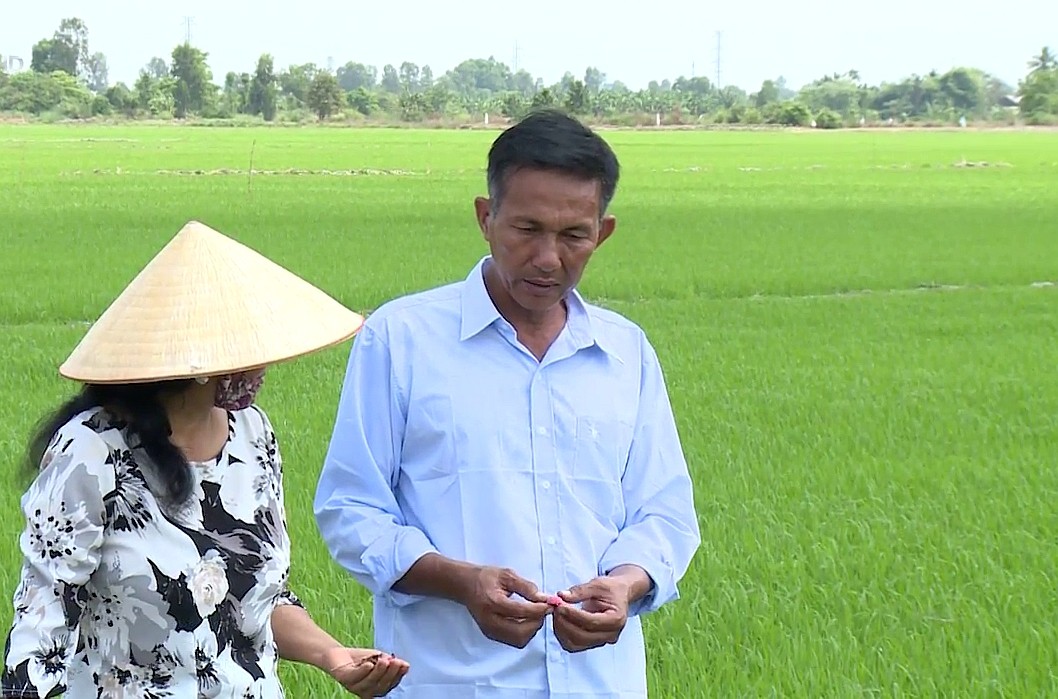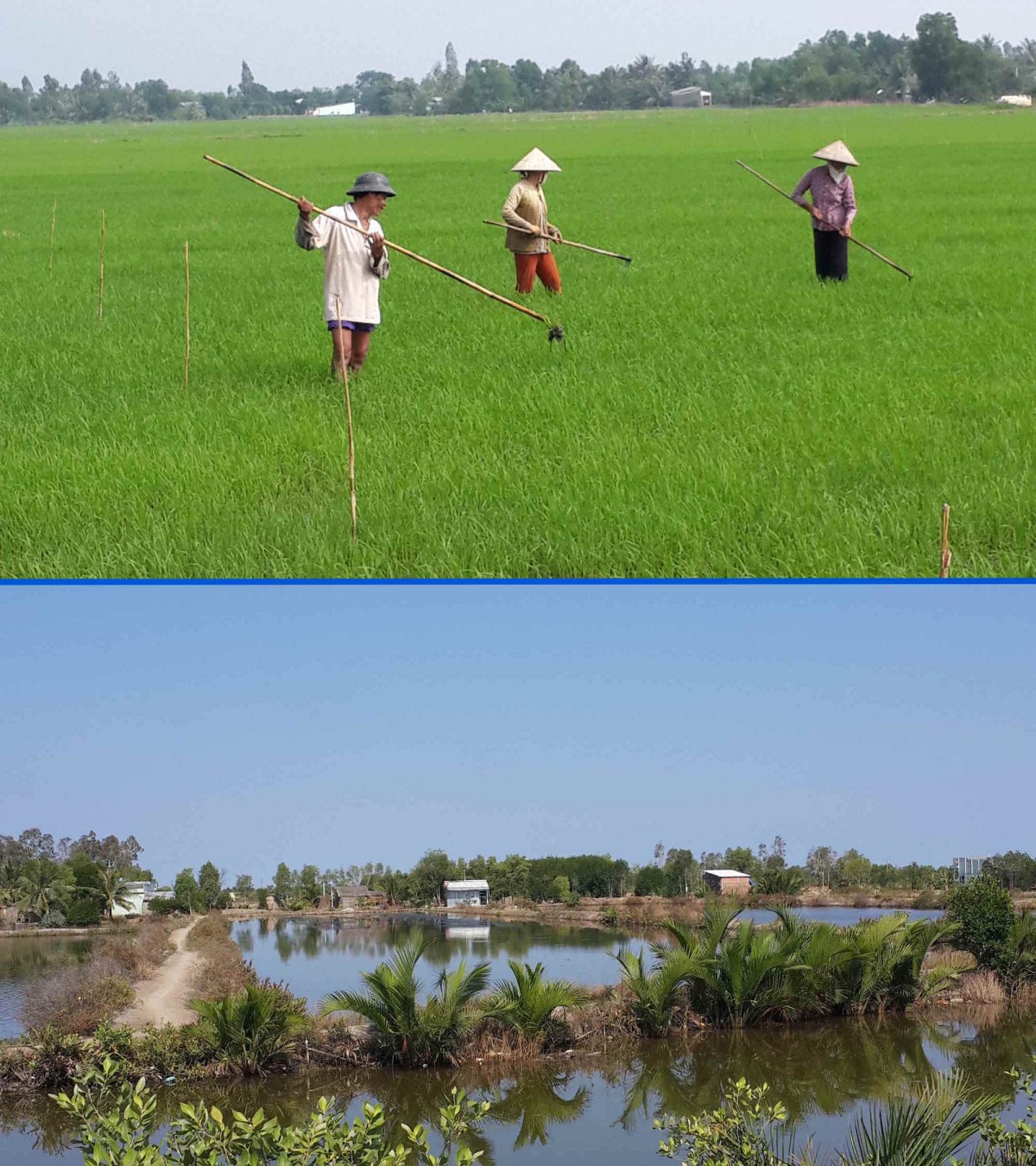Knowledge brings behavior change
Posted Date: Thursday, February 23, 2017
| Source: wle.cgiar.org
In the Mekong Delta,
declining fish catch is the most noticeable symptom of environmental
changes that are threatening traditional livelihoods. A WLE Greater
Mekong project, working with local institutions, has been raising
awareness of the issues causing this decline and is now detecting
grass-roots desire to change livelihood systems as people look to return
their ecosystems to better health.
The Mekong Delta is of great importance not only to Vietnam’s economy
but to the whole Mekong region. The area is known as the rice bowl of
Vietnam, producing around 90% of the country’s rice exports and also
supplying fish and fruit to neighbouring countries.
Since the early 1990s, rice farming has gradually intensified as
irrigation networks have expanded and use of inputs has increased. Some
farmers began growing three rice crops per year and, with the addition
of the full dyke system in the early 2000s, many more farmers became
able to triple-crop. While this enabled rice production to increase
until Vietnam became one of the world’s largest rice exporters, the
environmental drawbacks have begun to affect many residents of the
Delta.
More fertiliser is needed each year to maintain rice yields on land that
is so intensively farmed. The network of irrigation canals and gates
catches input-laden water that run offs from fields and holds it in
closed channels for much of the year, meaning that agricultural
chemicals build up in the system. This is thought to be one of the main
factors in the decline of fish catch across the Delta.
Fish are disappearing from rivers, streams and canals, and along with
aquatic species such as shrimps and frogs, they are becoming less common
in paddy fields. This reduction in freely available traditional protein
sources greatly affects poorer households. As fish become harder to
find, people resort to more extreme methods of catching them. The rising
use of electricity, small-mesh nets and chemicals then further damages
aquatic resource populations.
At the same time weather patterns are becoming increasingly
unpredictable. Drought periods are followed by floods, while salt water
from the South China Sea at the end of the Delta is intruding further up
the river system every year.

Mr Phan Quoc Dung of Thai Thanh Commune in Can Tho City says that in
the past it was easy for farmers to catch up to 20 kg of fish and
aquatic animals in a day, but that now people are lucky to catch half a
kilo - VTV2
The WLE project River food systems from villagers’
perspectives in the Mekong Delta has spent two years talking to farmers
and local officials about what is happening to water resources, and is
disseminating its findings for wider discussion. Under the project, a
Vietnamese NGO, WARECOD, has joined with researchers from Can Tho
University, members of government agencies and mass organisations, and
Vietnam Television to document the situation and work with local people
to plan ways of reversing environmental degradation.
According to
Dr Mai Viet Van of the Aquaculture and Fisheries College at Can Tho
University, a revised approach to agricultural development can help
people in the Delta reverse ecological decline and cope with climate
change. "By diversifying crop and livestock systems, farmers can raise
species that are adapted to brackish water to take advantage of the
rising salinity," he explains.
This would mean adapting existing
irrigation systems in the area. Research conducted by WARECOD among
communities and local authorities suggests the will to make such changes
exists. Local people participated in the research through the Thaibaan
method, pioneered in the Mekong Basin to promote better management of
water resources.
Mr Nguyen Van Nuong of Thoi Thanh Commune says
this research has helped people understand their own role in managing
water resources, notably about how use of pesticides and disposal of
rubbish can affect their long-term livelihoods.

In some parts of the Delta, switching between rice growing and
shrimp farming can ensure a livelihood that is both economically and
environmentally sustainable - VTV2
Special effort
has been made to ensure women and ethnic minorities participate in the
research so that its findings are known throughout the population. Early
results have been encouraging. Following consultations in Bac Lieu
province, farmers have adapted their livelihood strategies to include
extensive shrimp farming, which uses the brackish water found locally
and has minimum impact on the environment. Farmers grow rice when fresh
water flows through the local channels and change to shrimp farming when
the seawater arrives.
Dr Đào Thị Việt Nga of WARECOD says this
adaptation is encouraging but that many people in the Delta need
external support to change their livelihoods approach. “We have been
able to provide knowledge support across a wide geographical area,
helping people to see the reality of the environmental situation. We
have shown people ecologically sound alternatives, but follow up is
required. If everyone in an area chooses the same livelihood strategies,
it will not work”.
The authorities acknowledge the situation and
want to support people’s desire for change, but they lack sufficient
resources. Dr Đào says further investment in behaviour change is
essential to the health of ecosystems in the Delta. “We have momentum
now and it must not be lost. Widespread change is required soon or the
recovery period for many ecosystem service will be too long”.
Aiden Glendinning